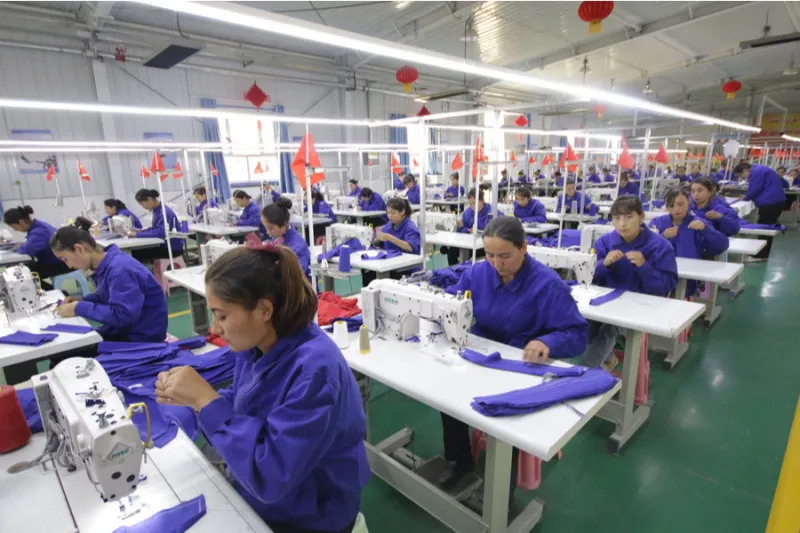
Washington D.C., Jul 15, 2021 / 14:01 pm (CNA).
A bipartisan bill to prohibit goods made by enslaved Uyghurs from entering the United States passed the Senate on Wednesday, July 14.
The Uyghur Forced Labor Protection Act, sponsored by Sens. Marco Rubio (R-Fla.) and Jeff Merkley (D-Ore.), passed the chamber by a voice vote on Wednesday. The legislation would restrict the import of all goods made in China’s Xinjiang province, unless it can be certified that the goods were not made with the use of forced labor.
“The message to Beijing and any international company that profits from forced labor in Xinjiang is clear: no more,” said Rubio in a statement following the bill’s passage on Wednesday.
The bill directs the head of U.S. Customs and Border Patrol to apply a “rebuttable presumption” that goods made in Xinjiang are made with forced labor unless it can be proven to the contrary.
Xinjiang is home to the Uyghurs, an ethnic minority group that is mostly Muslim, as well as other mostly-Muslim ethnic minorities. The United States has described the Chinese Communist Party’s (CCP) treatment of the Uyghurs and other minorities in Xinjiang as a “genocide.”
China created a network of detention camps where more than one million Uyghurs and other minorities are estimated to have been detained. There have also been reports of forced labor, mass surveillance of Uyghurs, forced sterilizations of Uyghur women, and torture in the camps.
The U.S. Department of Labor estimates that 100,000 Uyghurs and other ethnic minorities may be working in forced labor conditions, after having been imprisoned in the camps. Uyghurs have reportedly been transferred to other Chinese provinces to work in factories as well. Goods suspected of being made with forced labor in Xinjiang include gloves, hair products, textiles, thread and yarn, and tomatoes.
“We will not turn a blind eye to the CCP’s ongoing crimes against humanity, and we will not allow corporations a free pass to profit from those horrific abuses. Once this bill passes the House and is signed by the President, the United States will have more tools to prevent products made with forced labor from entering our nation’s supply chains,” Rubio said.
“We cannot afford any further delay, and I call on my colleagues in the House to promptly send this bill to the President,” he said.
Merkley echoed Rubio’s comments, saying that the bill’s passage is “a clear message that the United States will not be complicit in the Chinese government’s genocide of Uyghur Muslims.”
“Uyghurs and other predominantly Muslim ethnic minorities in Xinjiang are being forced into labor, tortured, imprisoned, forcibly sterilized, and pressured to abandon their religious and cultural practices by the Chinese government,” said Merkley.
“No American corporation should profit from these abuses. No American consumers should be inadvertently purchasing products from slave labor.”
The bill is co-sponsored by 53 other senators, plus Rubio and Merkley. The legislation now moves to the House of Representatives.
Last year, a similar bill passed overwhelmingly in the House, although corporate lobbying opposed the legislation in the Senate.
Since 2017, the Chinese Communist Party has operated a system of detention camps for Uyghurs. Survivors of the camps have testified to their brutality, noting that sexual assault by guards is commonplace, as is forced sterilization.
If you value the news and views Catholic World Report provides, please consider donating to support our efforts. Your contribution will help us continue to make CWR available to all readers worldwide for free, without a subscription. Thank you for your generosity!
Click here for more information on donating to CWR. Click here to sign up for our newsletter.





Leave a Reply